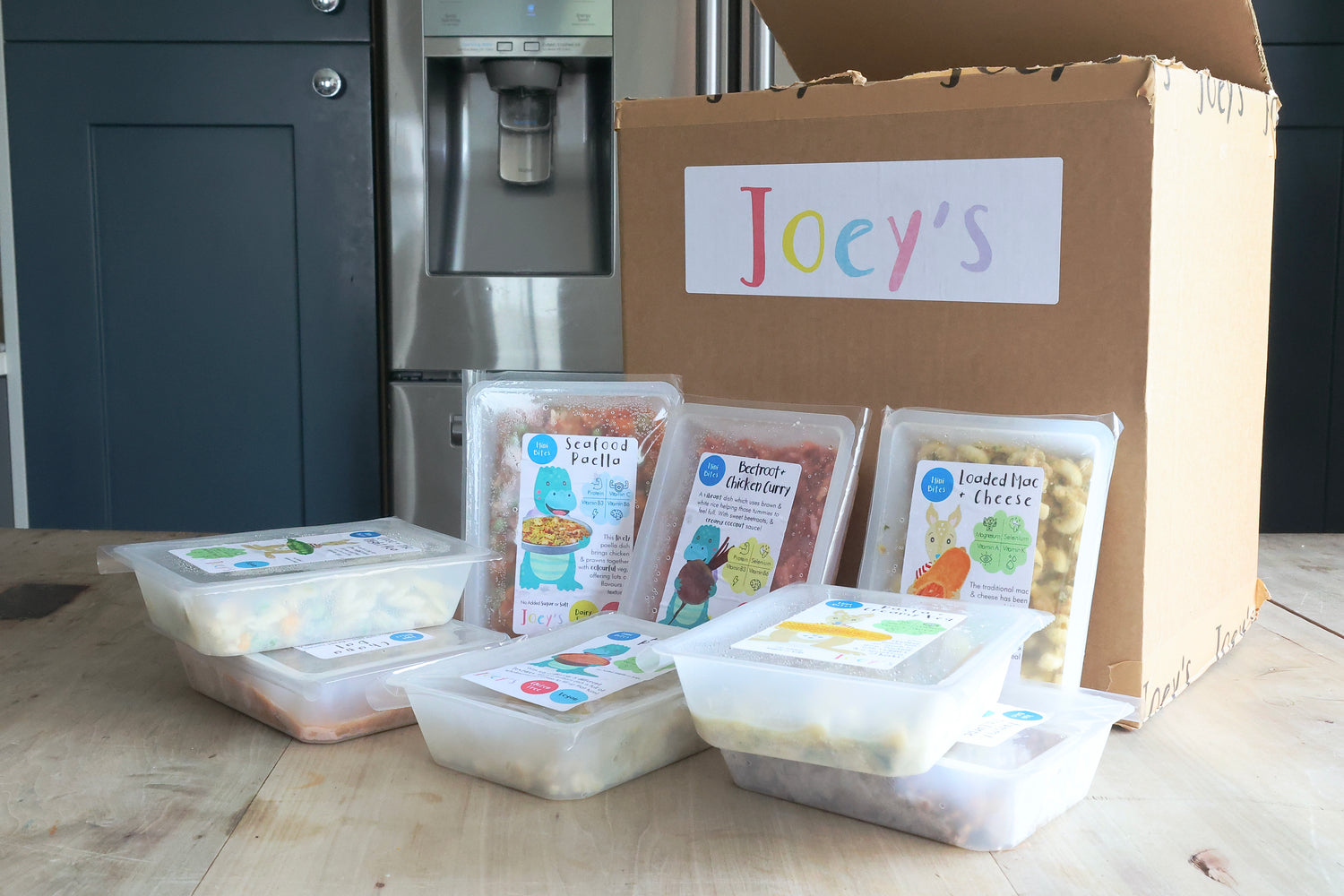
The Importance of a Balanced Diet for Young Children
Thinking about nutrition on top of everything else each day brings with family life can feel very overwhelming. It is one of the many reasons why Joey’s is here today. Ensuring your child has a balanced diet is one of the most important responsibilities a parent has. It directly impacts their physical & mental growth, development, affects their sleep & overall health. A well-rounded diet fuels their bodies with essential nutrients, giving them the energy they need to explore, learn & thrive.

Why Is a Balanced Diet So Important?
· Supports Growth & Development - Children grow rapidly during their early years & it’s their diet that plays a vital role in supporting this. Protein, calcium, iron & vitamins D & A help build strong muscles & bones. Without these critical nutrients can lead to developmental delays or growth issues.
· Fuels Energy Levels - Young children are full of energy & always on the move! They need a good balance of carbohydrates, proteins & fats to maintain their energy levels throughout the day. A nutritious diet helps them stay active, engaged & mentally sharp for school & play.
· Supports Brain Development - The brain undergoes significant growth in early childhood. Omega-3 fatty acids is an important nutrient & can be found in oily fish like salmon & is also absorbed from ground flaxseed. Iron & B vitamins are also essential for cognitive development, attention span & learning abilities.
· Strengthens the Immune System - A variety of vitamins, especially A, C & E, help boost immunity. A well-balanced diet full of fresh fruits, vegetables & whole grains provides these nutrients. Offering a range of fermented foods too, will also give a boost & these can be eaten from 6 months of age. Kefir, yoghurt, Sauerkraut, sourdough, kimchi & tempeh are a few examples. It is all about eating the rainbow! Providing this support through diet is one way you can help your child fend off those common colds & illnesses, especially during school season.
Key Nutrients for a Balanced Diet
· Carbohydrates: The primary source of energy for active little ones, found in grains, vegetables & fruits.
· Proteins: Essential for growth & repair of tissues, proteins are found in meat, fish, eggs, beans & lentils
· Fats: Healthy fats, like those in avocado, nuts & fish, are crucial for brain development.
· Calcium: For strong bones & teeth, ensure kids have enough calcium from dairy products or fortified plant-based alternatives.
· Iron: Helps in cognitive development & keeping energy levels up. Great sources include red meat, spinach & lentils.
· Vitamins & Minerals: A colourful plate filled with fruits & vegetables offers a range of vitamins & minerals to support immunity, skin health & overall wellness.

Tips for Encouraging a Balanced Diet
· Offer Variety: Try to include a range of colours, textures & flavours in your child's meals. This will not only keep things exciting but will also ensure they receive a broad range of nutrients.
· Lead by Example: Children learn by watching. If they see you eating a variety of nutritious foods, they are more likely to follow suit.
· Make Mealtimes Fun: Turn eating into an enjoyable experience, ask them what colours of the rainbow they have eaten today? Involve kids in meal prep, letting them pick vegetables at the store & use fun-shaped food cutters.
· Don't Fear the Healthy Fats: Ensure you include good fats like those found in nuts, seeds & oily fish, as these are crucial for brain & nervous system development.

By providing your child with a balanced diet, you are setting the foundation for a healthy future. Remember, balance doesn't mean perfection – aim for variety & nutrient-rich options through the week to help your little one grow, develop & thrive!
Happy reading & here's to healthier, happier kids!

